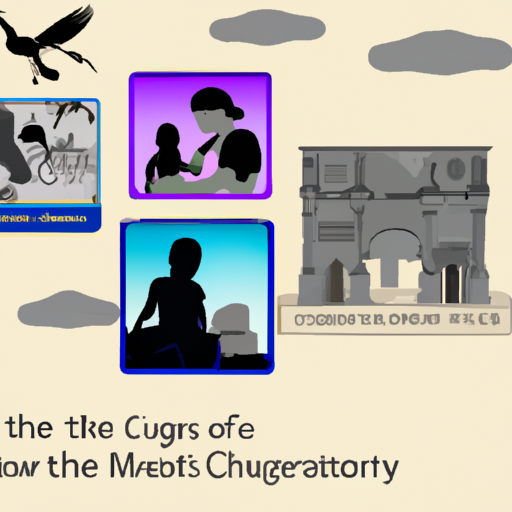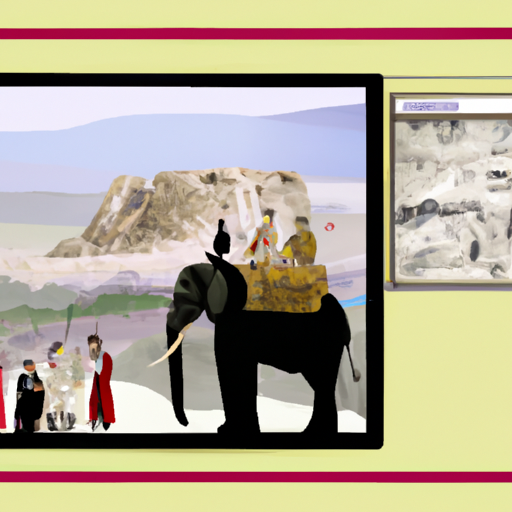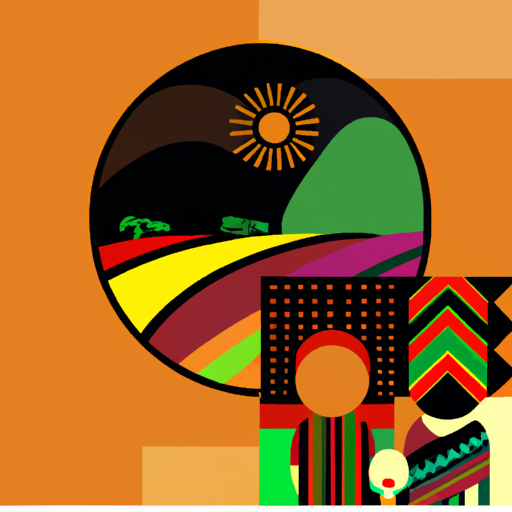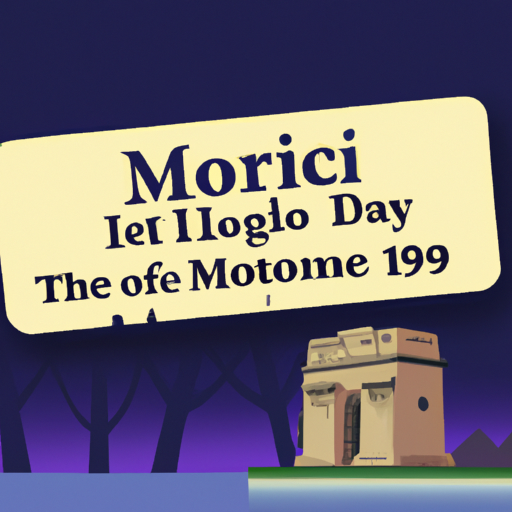Exploring the History of 3 Ancient Cultures
Unearth the mysteries of the past with timeless civilizations! Delve into a realm of intrigue and surprise, where secrets are revealed and knowledge is power. Discover a world of ancient cultures, each with their own unique customs and beliefs. Immerse yourself in an era of exploration and discovery as you uncover the truth behind these captivating societies. Unlock the door to a forgotten age and explore the wonders that await you!
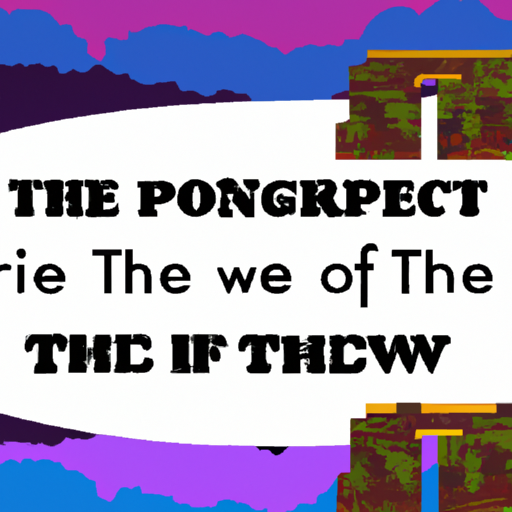
Delving into the past can be a captivating journey of exploration and discovery. From ancient times to the present, history has left its mark on our lives. Unearth the secrets of three timeless societies: Egypt, Greece and Rome. Learn about their customs and beliefs that have been carried down through generations. Discover how these civilizations have impacted our world today – from language to architecture to religion – and explore the ruins that remain as testament to their greatness. Uncover the empires that rose and fell, and uncover mysteries that have been hidden for centuries. Step back in time and immerse yourself in an era of intrigue, mystery, and revelation as you unlock the door to a forgotten age.
.
Introduction

For millennia, the past has been a source of intrigue and wonderment. Three of the most captivating cultures are those of the Ancient Egyptians, Greeks, and Romans.
The Ancient Egyptians left behind an enduring legacy with their hieroglyphics writing system and iconic monuments like the Great Pyramid at Giza. They also made advancements in mathematics and astronomy.
The Ancient Greeks are credited with developing democracy, creating a plethora of works in literature, art, architecture, sculpture, and philosophy that have shaped our modern world.
The Romans were renowned for their engineering prowess which allowed them to develop cities with sophisticated infrastructure such as roads and aqueducts. Additionally, they spread Christianity throughout Europe during their reign.
– Ancient Egyptian History
Encompassing thousands of years, the history of Ancient Egypt is an intricate and multifaceted one, commencing around 3100 B.C. with the unification of Upper and Lower Egypt, and concluding with the conquest of Alexander the Great in 332 B.C. During this time, the Egyptians created a vibrant culture featuring religious practices, artistry, architecture, writing systems and much more. The history of Ancient Egypt is divided into three distinct periods: Old Kingdom (2686-2181 B.C.), Middle Kingdom (2040-1782 B.C.), and New Kingdom (1550-1070 B.C.). Each period saw progressions in technology as well as cultural shifts that molded its fate.
The Old Kingdom was an era of great abundance for Ancient Egypt; it was during this period that renowned pyramids were constructed, while mighty pharaohs held complete authority over their subjects. This era also marked advances in agriculture, writing systems, military technology and other aspects that later became fundamental to Egyptian culture.
The Middle Kingdom witnessed a decline in power for the pharaohs as they lost control over certain regions to foreign rulers such as the Hyksos from Asia Minor; furthermore, trade with other civilizations like those from Mesopotamia and Syria increased during this period leading to intercultural exchange between these societies.
The New Kingdom was a time of tremendous growth for Ancient Egypt politically and economically due to its greatest geographical reach under pharaohs like Ramses II who conquered lands ranging from Libya to present day Israel; additionally, artistry, literature and architecture flourished during this period which still impacts modern society today.
Overall, Ancient Egyptian history is an essential part of world history due to its lasting effect on many facets of contemporary society including religion, artistry and language among others.
– Ancient Greek History
Awe-inspiring and captivating, the history of ancient Greece is a vast expanse of culture and civilizations. From around 2000 BC to the time when Rome conquered Greece in 146 BC, this period’s influence can still be seen in Western culture today. Divided into four distinct periods: Bronze Age (ca. 3000-1100 BC), Archaic period (ca. 1100-480 BC), Classical period (ca. 480-323 BC), and Hellenistic period (323-146 BC); powerful city-states such as Athens and Sparta rose to prominence while other regions like Macedonia and Thrace also played a part in its shaping.
Politically, it was composed of independent poleis that often fought each other but joined forces when needed – one such example being the notorious Peloponnesian War between Athens and Sparta in 431 BC which ended with a Spartan victory. Culturally, it left an indelible mark on fields such as mathematics, science, literature, theatre, art, architecture, philosophy and religion – many of which have been carried down through generations to our modern world today. Notable figures include Socrates, Plato and Aristotle who are credited with much of the foundations for Western thought today.
Without a doubt, ancient Greek history is brimming with stories that remain relevant even today – making it an essential area for further exploration!
– Ancient Roman History
Mysterious and spellbinding, the story of ancient Rome has enthralled people for ages. From around 500 BC to 400 AD, Rome was a major force in Europe and had a tremendous impact on the development of western civilization.
The early Romans were an agrarian society, with a monarchy as their government. In 509 BC, they overthrew their king and created a republic led by two consuls. This system enabled them to expand their empire through conquering other lands and increasing their territories.
Rome was renowned for its military might and engineering feats such as roads, aqueducts, bridges, and amphitheaters; plus complex laws and taxation systems; plus an alphabet based on Greek letters. Culturally speaking, they adopted many aspects of Greek culture but added their own unique twists to it – creating a distinct Roman identity that still affects our culture today.
Notable figures from Roman history include Julius Caesar and Augustus Caesar who shaped the empire’s destiny; Cicero who wrote influential works on politics; Virgil who wrote The Aeneid; Horace who wrote poetry; Livy who wrote histories; Ovid who wrote myths; Pliny the Elder who wrote natural histories; Seneca who wrote tragedies; and Tacitus who wrote biographies.
In 476 AD, Rome fell – yet its legacy lives on in language, law, architecture, literature, art, politics and religion.
– Historical Significance of Ancient Cultures
The past has been a source of great mystery and intrigue for centuries. From the depths of antiquity, ancient cultures have left behind an abundance of knowledge that can help us comprehend our own evolution. With their impressive technological achievements and spiritual beliefs, these civilizations have had a lasting influence on the development of modern society.
The Egyptians were known for their intricate irrigation systems and writing system that was used to document their laws and religious texts. Meanwhile, the Mayans devised an extraordinary calendar system that could accurately predict solar eclipses thousands of years in advance. These advancements demonstrate the ingenuity of these ancient societies, which can still serve as an inspiration today.
In addition to technological advances, ancient cultures also held strong spiritual convictions that shaped their way of life. The Egyptians believed in an afterlife and worshipped many gods, while the Mayans revered certain animals due to their spiritual significance. These beliefs provided structure to their lives and gave them a sense of purpose that still resonates today.
Without ancient cultures, much of what we know about our past would be lost forever. By studying these civilizations, we can gain insight into our own history and learn from their mistakes so that we can create a better future for ourselves.
– Impact of Ancient Cultures on Modern History
Throughout time, ancient societies have left a powerful imprint on our world. From the rise and fall of empires to the spread of languages and religions, their influence is still felt today. Early writing systems, such as those of Mesopotamia and Egypt, have been adapted by many cultures around the globe. Religions like Christianity, Judaism, and Islam were born from early civilizations and continue to shape how we live today. Technology has been greatly impacted by these ancient cultures – inventions like the wheel or gunpowder are still used in modern society. Trade between ancient societies has also had a major role in history; goods were exchanged across vast distances through silk roads and trade routes that helped spread ideas and technologies among different cultures. It is clear that ancient cultures have had an immense effect on modern history – from language to faith to technology – they remain an integral part of our shared global history.
conclusion
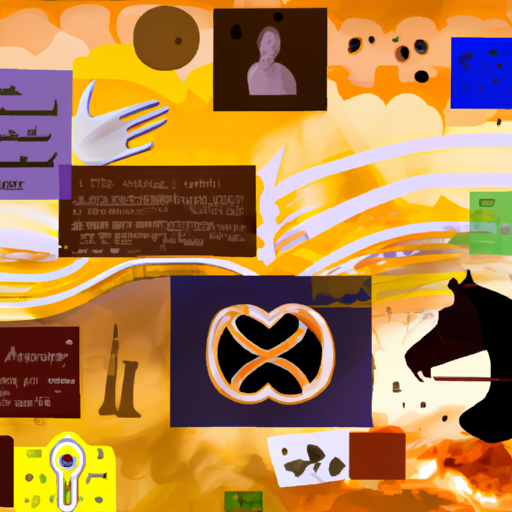
The past is a mystifying entity, ever-changing yet never fading. It remains in our present, while simultaneously imprinting its mark on the future. Three of the most influential ancient cultures that have left their indelible stamp on civilization are the Egyptians, Greeks, and Romans. From art to science, philosophy to government, these three cultures have had an immense impact on the world as we know it today – an influence that continues to be studied and admired across time and space.
.
Some questions with answers
Q1: What are 3 ancient cultures?
A1: Ancient cultures include the Egyptian, Mesopotamian and Greek civilizations.
Q2: What is the history of these ancient cultures?
A2: The Egyptian civilization dates back to around 3150 BC. Mesopotamian civilization began around 3500 BC and Greek civilization began around 800 BC.
Q3: How did these ancient cultures influence modern society?
A3: These ancient cultures have had a lasting influence on modern society. They have provided us with knowledge in areas such as mathematics, philosophy, literature, art and architecture.
Q4: What artifacts remain from these ancient cultures?
A4: Artifacts from these ancient cultures include pyramids, sculptures, temples, pottery and writings.
Q5: How can we learn more about the history of these ancient civilizations?
A5: We can learn more about the history of these ancient civilizations through books, museums and archaeological sites.


